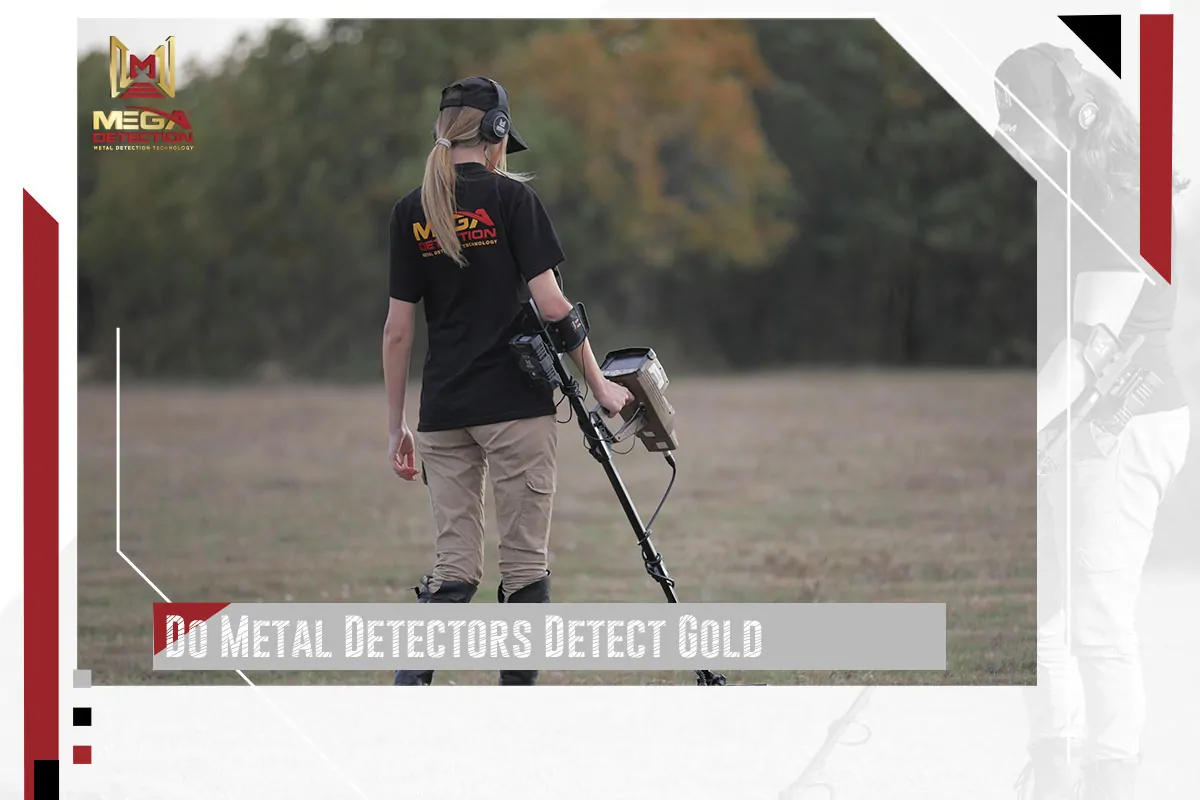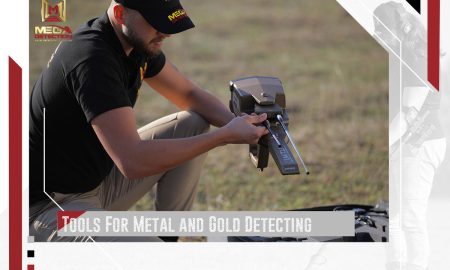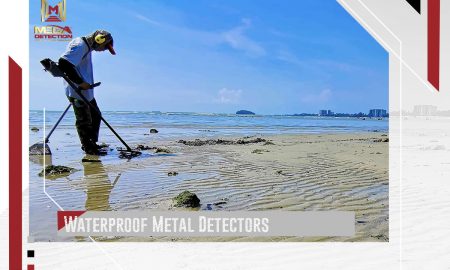Do Metal Detectors Detect Gold?
Do Metal Detectors Detect Gold?
Detect gold can be a hugely rewarding hobby. It could even turn into a big payday if you find the right area to search. Metal detecting in general is also a wonderfully rewarding hobby.
So, do metal detectors detect gold? And can you really find buried gold treasures that’ll make you rich? Well, we’ll cover that throughout this article. But it’s important to note that some of the largest gold nuggets ever found have been discovered using metal detectors.
One of the best ways to start prospecting with your metal detector is to take the time to do some research. I know. This sounds a lot more boring than just getting out there and finding treasure. However, knowing the ins and outs of gold detection will aid you immensely!
The Basics of Gold Prospecting
It is commonly accepted that the old-time prospectors took all the good gold during the Gold Rush days. This is simply not true! We have a lot more technological advances to find gold today than they did, we have better access to difficult areas than they did, and mostly, we have more time and patience than they did. They were in the Gold Rush for quick money. We can take our time and find the best areas left. Understanding the basics behind prospecting will get you a long way toward your goals of finding gold.
Successful gold prospecting begins with sampling. We used to take small gold pans to creeks and rivers to search for gold. We would take a few sample pans to see if any flakes or nuggets appeared. This can help enormously when determining where the best location to prospect is. Once you have found a good location, you can begin detecting. Gold tends to hang out near or on bedrock.
So, look for places with exposed bedrock, either on land or in streambeds. Check areas with exposed tree roots, edges of streams, rivers, and dry washes. Smaller tributaries in high elevation areas are also known to contain some gold in the certain areas.
Can Metal Detectors Find Gold?
All metal detectors can find gold. They are designed to find all metals. But certain detectors are made to find specific metal types. There are detectors built for coin shooting, relic hunting, underwater detecting, silver, and gold. Many detectors are all-around metal detectors, meaning they can find all metals equally well. Gold specific detectors are designed a little bit different, though.
Metal detectors made specifically to find gold are some of the most popular tools among gold prospectors. Gold metal detectors are just like any other metal detector but have been specifically calibrated to find gold. Metal detectors work by transmitting electromagnetic fields into the ground, then analyzing the return signal.
This electromagnetic field induces loops of current called eddy currents, within conductive metals. Eddy currents generate their own magnetic field, which the detector then receives and analyzes. Metal detectors made specifically for gold take this a step further. They measure inductance and conductivity. Inductance is the amount of eddy current produced by a target, and conductivity refers to how easily those currents flow through a target. Gold detectors measure the size of the eddy currents and how quickly they travel, thus, calculating the “time constant” of a target.
A time constant varies among targets. Aluminum, for example, has a short time constant while gold coins or jewelry have a longer time constant. Ferrous metals, like steel and iron, have an even longer time constant. Gold metal detectors are calibrated to specifically search for targets that fall within this middle range. It is not a fool proof system, however, and is dependent upon the size, shape, and depth of a target. But, to compensate, gold detectors can typically be recalibrated in the field to search for a broader or narrower time constant.
Metal Detecting for Gold Nuggets
The odds of finding a large gold nugget in most areas are slim. But never impossible! It is important to always look for gold where it has already been found. The most expensive metal detector in the world cannot magically find gold where it does not exist. Some tips for finding gold nuggets with your metal detector are looking in washes, tailings piles, dredge piles, and creeks.
Dry washes, especially here in the west, are great places for gold nuggets to hang out. They are moved by flash floods, so they can be anywhere the dry washes are. Tailings and dredge piles are the leftovers from previous gold searches. These searchers were looking for large nuggets, but many get left behind because they are stuck to some other rock or were too small to bother with.
Creeks are another great place to find gold nuggets. This gold is referred to as placer gold. Gold is a heavy metal. In fact, it is approximately 6 times heavier than the average materials found in streambeds. And this makes its movements within water quite predictable. Gold will continue downstream until it reaches an obstruction.
This could be a crevice in the bedrock, a low energy pool, under waterfalls, or anywhere else where the water has lost some energy. Inside bends of creeks and rivers are great places for gold to get caught up. Walk the area and determine where these bends are located. Look for any large boulders within the water that would cause the gold to be stopped. Check areas where bedrock is visible, or shallow.
So, do metal detectors detect gold treasure and fortune? Yes. Yes, they do! You do not need a wildly expensive metal detector to find gold, but if your budget allows, and you have the necessary metal detecting skills, I recommend a mid-priced to high-end gold detector.
The guesswork has been taken out of these detectors and they are already specifically calibrated to detect gold. Especially if you are in an area known for producing gold. There are many such areas in our country and many of them are on public lands or national forest lands, which we can access any time, weather permitting.












Leave a Reply